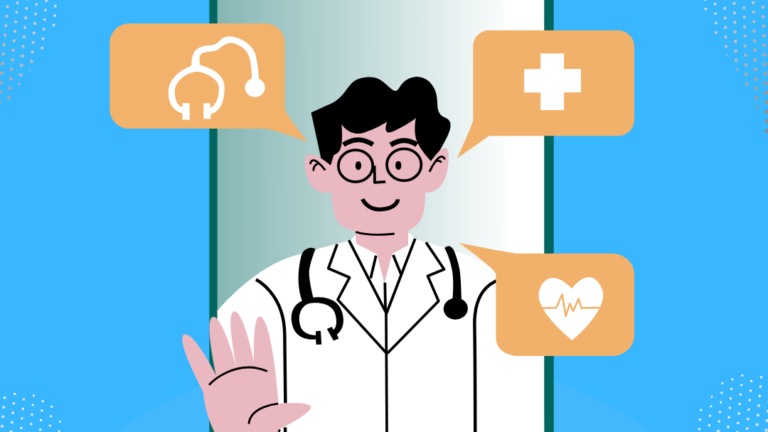The healthcare industry is undergoing a transformation fueled by technological advancements. One of the most significant contributors to this evolution is custom software development. Tailored solutions are redefining patient care, operational efficiency, and data management. In this blog, we will explore how custom healthcare software development services are shaping the future of healthcare.
Enhancing Patient Care
Custom software development is revolutionizing patient care by providing tools that enable personalized and efficient treatment. Here’s how:
1. Telemedicine Solutions: Telemedicine has gained immense popularity, especially post-pandemic. Custom telemedicine platforms enable healthcare providers to offer remote consultations, reducing the need for in-person visits. These platforms often integrate with electronic health records (EHR) and provide features like video conferencing, secure messaging, and prescription management.
2. Patient Portals: Custom patient portals empower patients to take an active role in their healthcare. These portals allow patients to schedule appointments, access their medical records, view test results, and communicate with their healthcare providers. This level of accessibility and transparency enhances patient engagement and satisfaction.
3. Remote Patient Monitoring: Custom software solutions enable remote monitoring of patients with chronic conditions. Wearable devices and connected health apps collect real-time data, which is then analyzed by healthcare providers. This continuous monitoring helps in early detection of issues, timely interventions, and reduces hospital readmissions.
Streamlining Operations
Efficiency in healthcare operations is crucial for providing high-quality care. Custom software development addresses this need by automating processes and improving resource management.
1. Electronic Health Records (EHR) Integration: Custom EHR systems are designed to meet the specific needs of healthcare providers. These systems streamline the documentation process, reduce paperwork, and ensure that patient information is easily accessible and secure. Integration with other healthcare systems further enhances efficiency.
2. Workflow Automation: Healthcare facilities can benefit from custom workflow automation solutions. These tools automate routine tasks such as appointment scheduling, billing, and inventory management. By reducing the administrative burden on staff, healthcare providers can focus more on patient care.
3. Resource Management: Efficient resource management is critical in healthcare settings. Custom software solutions help in managing staff schedules, optimizing the use of medical equipment, and ensuring that supplies are adequately stocked. This leads to cost savings and improved operational efficiency.
Data-Driven Decision Making
The ability to collect, analyze, and interpret data is transforming healthcare. Custom software development plays a pivotal role in harnessing the power of data.
1. Data Analytics: Custom analytics platforms provide healthcare providers with insights into patient outcomes, treatment efficacy, and operational performance. By analyzing data trends, healthcare organizations can make informed decisions that improve patient care and optimize resources.
2. Predictive Analytics: Predictive analytics is a game-changer in healthcare. Custom software solutions can analyze historical data to predict patient outcomes, disease outbreaks, and resource needs. This proactive approach enables healthcare providers to take preventive measures and improve patient outcomes.
3. Artificial Intelligence (AI): AI-powered custom software applications are revolutionizing diagnostics and treatment planning. Machine learning algorithms can analyze medical images, identify patterns, and assist in diagnosing conditions with high accuracy. AI also plays a role in personalized treatment plans based on a patient’s unique medical history and genetic makeup.
Ensuring Compliance and Security
Healthcare organizations must adhere to strict regulations and ensure the security of patient data. Custom healthcare software development services are designed with compliance and security in mind.
1. Regulatory Compliance: Custom software solutions are developed to comply with healthcare regulations such as HIPAA (Health Insurance Portability and Accountability Act) and GDPR (General Data Protection Regulation). This ensures that patient data is handled securely and that healthcare providers meet legal requirements.
2. Data Security: Cybersecurity is a top concern in healthcare. Custom software development includes robust security measures such as encryption, access controls, and regular security audits. These measures protect patient data from breaches and unauthorized access.
3. Secure Data Sharing: Custom software solutions facilitate secure data sharing between healthcare providers, laboratories, and other stakeholders. This interoperability ensures that critical patient information is available when needed, without compromising security.
Future Trends in Custom Healthcare Software Development
The future of healthcare with custom software development is promising, with several emerging trends set to redefine the industry.
1. Blockchain Technology: Blockchain technology has the potential to revolutionize data management in healthcare. Custom blockchain solutions can provide a secure and transparent way to store and share patient records, ensuring data integrity and reducing the risk of fraud.
2. Internet of Medical Things (IoMT): The integration of IoMT devices with custom software solutions will enhance remote monitoring and patient care. Wearable devices, smart implants, and connected health devices will generate real-time data that can be analyzed to improve patient outcomes.
3. Personalized Medicine: Custom software solutions will play a crucial role in advancing personalized medicine. By analyzing genetic data and patient history, these solutions can help in developing tailored treatment plans that are more effective and have fewer side effects.
4. Virtual and Augmented Reality: Virtual and augmented reality applications are finding their way into healthcare. Custom software development can create VR and AR solutions for surgical simulations, medical training, and patient education, enhancing the overall quality of care.
Conclusion
The future of healthcare is bright with the integration of custom software development. From enhancing patient care and streamlining operations to enabling data-driven decision-making and ensuring compliance, custom healthcare software development services are at the forefront of this transformation. As technology continues to evolve, we can expect even more innovative solutions that will further revolutionize the healthcare industry, ultimately leading to better patient outcomes and more efficient healthcare systems.

